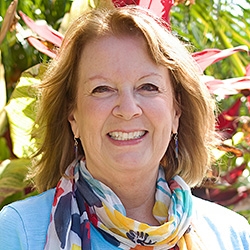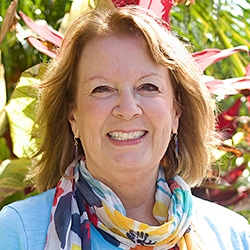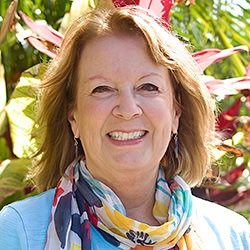

Search Results: needs
-
Trainer Tip: "Power over" refers to using power, coercion, fear or authority to force change. It rarely brings lasting change. "Power with" refers to power that seeks to meet everyone’s needs. A "power with" system values input and needs of everyone who will be affected by decisions. When you notice you're using a power over paradigm to get results, shift focus to power with. Notice how this shift in consciousness affects results.
-
- Gain a deeper insight into the spiritual practice of NVC as taught by Robert Gonzales
- Enhance your emotional intelligence and self-compassion
- Learn compassionate self-talk techniques and cultivate more inner peace
- Approach change with a peaceful mindset, rather than anxiety and fear
-
-
In this NVC Life Hack, we look at those circumstances when we're saying yes ... but only kinda! Because we're still actually saying no. Shantigarbha and Gesine look at the needs that aren't being met.
-
Telling yourself to be a certain way or have more of a certain quality (like courage), is a set-up for self-criticism and possibly freezing or avoiding. Instead, access effective action by asking yourself questions like: "If I could be or have that, what actions would be different inside or out?" "If I could be or have that, what needs would be met and knowing those are the needs, what could I do or ask for that would meet those needs?"
-
To tell the difference between empathy and investigation, watch for distinctions along four different dimensions: energy, subject, intention and trust. These distinctions can help us engage awareness and skill to meet your needs and respond to others’ needs in more direct ways. The more you meet your needs in conscious and direct ways, the more present you can be for others. Read on for more about how to do this.
-
Codependency occurs when others' behavior affects us in unhealthy ways and we get obsessed with controlling their behavior. For example, we may focus on other's needs while neglect what matters to us, and resent it. Or we may depend on others to rescue us from results of our actions. Or we may fix or rescue others' neglected responsibilities. Or we may make others responsible for our needs. Instead, notice your needs, what you can('t) change, and your priorities.
-
Part of making your relationship a priority while maintaining autonomy means you consider the impact your actions may have on your relationship and look to negotiate ways all needs can be honored. To do this while not losing yourself, practice writing down your needs and guessing their needs beforehand. Make an upfront request to create a shared understanding about what’s most important, before discussing strategies or decisions.
-
The Compass – Arnina Kashtan's in-depth transformational process – is specifically designed to support you in reliably deepening your understanding of your own and others' conditioning, and finding ways to reclaim your full connection with yourself.
-
Trainer Tip: What is motivating your (in)actions? Are you doing something in the name of supporting deeper heartfelt needs, free of judgement or blame? Or are you bringing in consequences based on viewing the other person as having "bad behaviour"?
-
Listen as Liv shares her experience of mediating conflict between two groups: using NVC to ascertain the needs of both sides, raise awareness, and diminish polarization.
-
Hello friends. I’m Roxy Manning. When Mary invited me to write this letter, I could not help but reflect on what has been most alive for me recently… the way many of us will easily help someone else, but fear to ask for help for ourselves. On December 4, I had an operation. My doctor predicted my recovery would take three weeks. As I prepared for the time off, I rushed to complete all of my work and personal commitments. I prepped and froze dishes so I would have things to eat after and arranged meal deliveries. Very few people knew I was having an operation and I reached out to only one person for support after. In hindsight, I was doing everything I could so...
-
-
-
-
Kelly shares how freedom and autonomy create strong, healthy, and loving relationships.
-
-
Recently, I have been pondering anger, how I express it and the jackal story I tell myself about it. Marshall Rosenberg taught that anger is a natural emotion that is based on a judgment of someone else or myself. I agree with this, so I have been doing some “enemy images” and self-empathy work (and praying for those who are most likely to be the recipients of my anger). My goal was to clear my judgments and take responsibility for my “stuff.” It has helped a lot, and yet I still feel a general anger in me that is not directly related to anyone or any specific situation.
-
What will it take to reclaim our fundamental relatedness with all things alive, surrender our attempts to control nature, and find a way of living that averts or mitigates the worst possible catastrophes awaiting us while it's still possible?
-
What exactly IS empathy? Empathy is the connection that happens between you and another when you experience your differences while holding on to underlying threads of commonality. In this recording, John will be sharing in-depth practices designed to give you the ability to speak and listen from a place of empathic presence, as well as a Self-Connection Practice specially formulated to help you come back to that empathy connection when you’ve gotten triggered into “fight-flight-freeze.”

Quick Links
Subscription Preferences
Stay In Touch!
Looking for ways to keep up with NVC Academy news, get special offers, free resources, or words of inspiration? Here are five ways to stay engaged:















